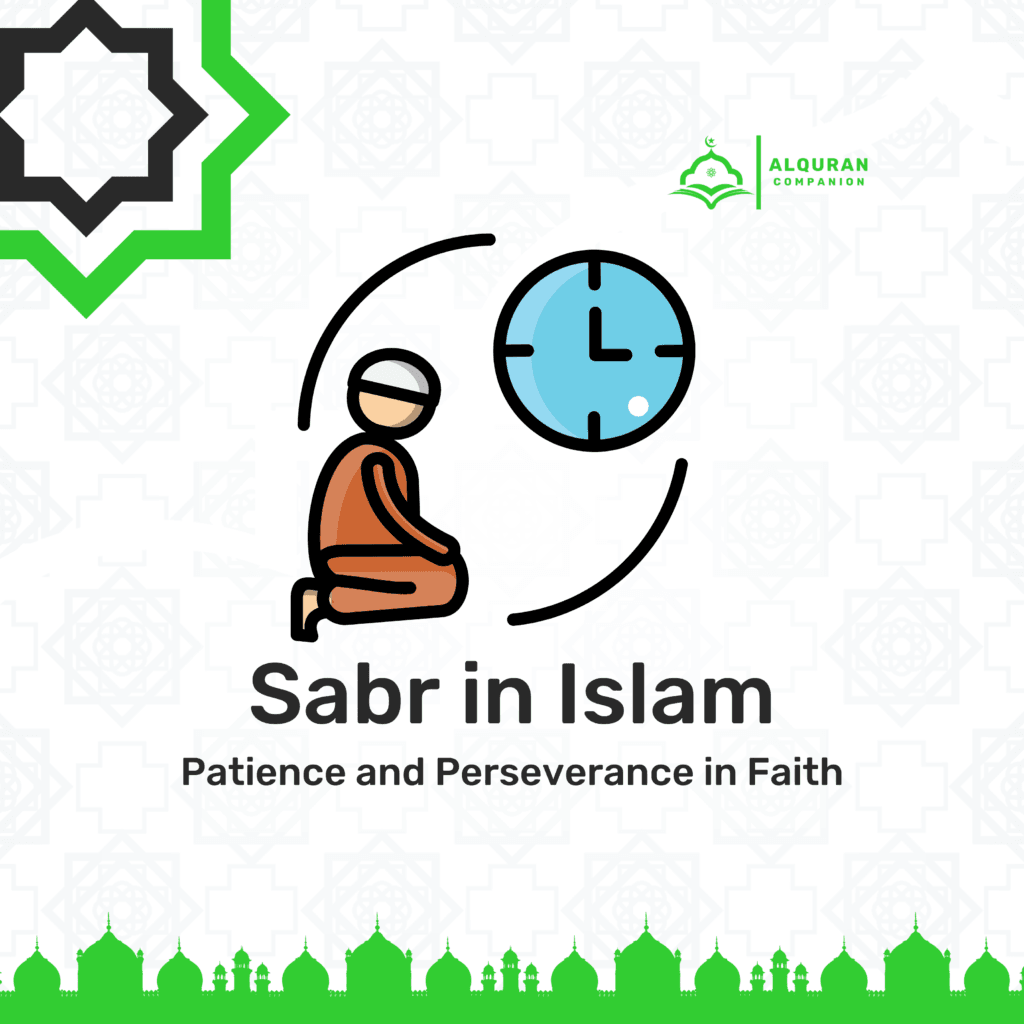What is Sabr in Islam?
Sabr, in Islam, means patience, perseverance, and trusting Allah’s plan. It teaches Muslims to remain steadfast in faith, endure hardships with grace, and submit to Allah’s decree with a hopeful heart. Sabr is not just about waiting—it’s about how we respond to life’s challenges with trust and resilience.
The Meaning and Importance of Sabr in Islam
In Islam, Sabr is more than just patience—it is a profound spiritual principle that encompasses endurance, perseverance, and complete submission to Allah’s decree.
Life is filled with trials and hardships, but Sabr teaches believers to remain steadfast, trusting in Allah’s wisdom and timing. The Quran and Hadith repeatedly emphasize the virtues of patience, reminding us that true strength lies in enduring difficulties with faith and gratitude.
What Does Sabr Mean in Islam?
Sabr is an Arabic word that embodies endurance, restraint, and perseverance. While it is often translated as “patience,” its meaning goes far beyond simply waiting—it encompasses resilience, self-control, and unwavering faith.
In Islam, Sabr means remaining patient during hardships while also staying committed to good deeds, even in times of ease. It is about accepting Allah’s decree with full trust, knowing that His plans are always in our best interest. True Sabr is not just about enduring difficulties—it’s about embracing them with faith, knowing that Allah’s wisdom surpasses our understanding.
Practicing Sabr strengthens the heart, deepens faith, and brings immense rewards in this life and the hereafter.
Why is Sabr Important in Islam?
In Islam, Sabr is not just a virtue—it is a fundamental act of the heart and an essential part of faith. It reflects a believer’s trust in Allah, helping them stay firm and connected to Him even in the face of life’s toughest trials.
Practicing Sabr shapes our character and strengthens our ability to navigate life’s challenges. It teaches us to remain patient, remember Allah in times of hardship, and deal with others with kindness and understanding. This not only improves our personal resilience but also strengthens our relationships with family, friends, and colleagues.
Allah promises immense rewards for those who practice Sabr. While we may experience difficulties such as loss, grief, or financial struggles, enduring these trials with patience brings spiritual peace and the promise of eternal ease in the Hereafter.
Moreover, Sabr in Islam is not only about enduring hardship—it also means having patience in avoiding sin and staying away from actions that displease Allah. It is a key to self-discipline, resilience, and ultimately, attaining Allah’s love and pleasure.
By embracing Sabr, we gain strength to overcome life’s tests while keeping our hearts content with Allah’s divine plan.
What does the Quran Says About Sabr?
The Qur’an repeatedly emphasizes the importance of Sabr (patience) and the immense rewards promised to those who remain steadfast in faith. It teaches that trials and hardships are a part of life, but through patience and trust in Allah, believers can overcome challenges and attain His blessings.
Sabr as a Test from Allah
Allah reminds us that we will face tests in this life, but patience brings great rewards:
This verse highlights that life’s trials are meant to test our faith. Those who remain patient are given glad tidings from Allah, as their perseverance is a sign of true submission.
Sabr Brings Allah’s Help and Support
Patience is not just about enduring hardships—it is also a means of seeking Allah’s guidance and strength.
This verse reassures believers that Allah is always with those who remain patient and turn to Him through prayer.
The Power of Patience and Trust in Allah
The Qur’an further emphasizes that patience not only helps us navigate challenges but also leads to victory over those who wish us harm.
This verse reassures us that patience, coupled with faith in Allah, shields us from the schemes of our enemies. No harm can truly affect a believer who trusts in Allah’s wisdom and remains steadfast in their faith.
The Reward of Patience in Times of Hardship
The Qur’an reminds us of the immense rewards promised to those who remain steadfast in times of affliction.
This verse highlights that patience is not just about enduring trials it is a path to ultimate success and eternal reward from Allah. Those who practice Sabr will find their perseverance recognized and rewarded in the Hereafter.
The Eternal Reward for Patience and Righteousness
The Qur’an beautifully reassures us of the immense rewards awaiting those who believe, do righteous deeds, and remain patient.
During times of difficulty, we should turn to the Qur’an for guidance and solace. These divine reminders fill our hearts with hope and provide comfort when we feel overwhelmed by life’s challenges.
Strengthen Your Patience Through the Quran
At Al Quran Companion, we guide you through the timeless lessons of the Quran, including the powerful concept of Sabr (patience). Our certified online Quran teachers offer personalized lessons for kids and adults, helping you or your child build a strong connection with Allah through understanding, reflection, and daily practice.
💠 Start Your 3-Day Free Trial Now
💠 One-on-One Online Quran Classes
💠 Flexible Timings for UK, USA, and Worldwide
💠 Special Focus on Tafsir, Tajweed, and Islamic Values
Start Your Free Trial using the button given below and transform your Quranic journey with faith, patience, and purpose.
FAQs

Al Quran Companion Team
Verified AuthorThe official academic and editorial team at Al Quran Companion, a leading Online Quran Academy dedicated to simplifying Tajweed, Hifz, and Islamic studies for students worldwide.
Read more about author






